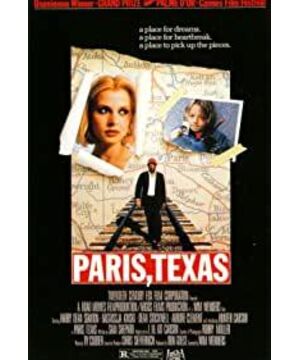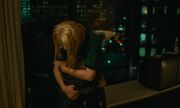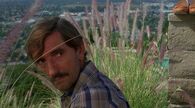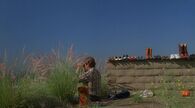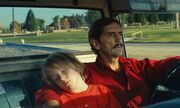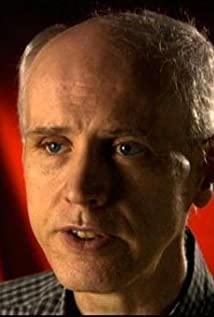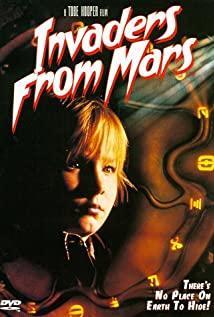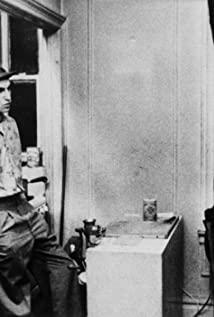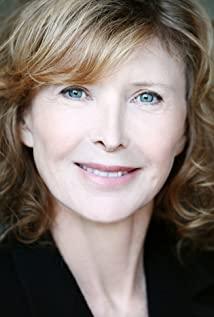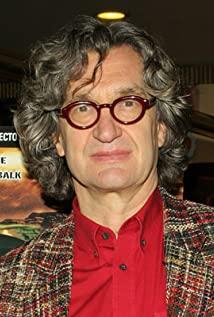"Paris, Texas" is a work filmed by German New Wave director Wim Wenders in the United States and won the Palme d'Or at the 1984 Cannes Film Festival. Wenders was born in the American occupation zone of Germany and was immersed in American culture since he was a child. He has a special yearning and yearning for the United States. However, when Wenders went to the United States to make a film, the pervasive imperialism and capitalism brought him a sense of loss and disillusionment, and finally made him decide to leave this place. "Paris Texas" is the last film Wenders made in Hollywood, and it is full of his alienation and loss of America.
"Paris, Texas" is a classic road movie with a plot based on road trips. However, the road in "Paris Texas" is not only the background of the story, but also represents the endless loneliness and wandering destiny. In the United States, the most developed road in the world, roads are like a spider web, connecting every place in all directions. However, on this road circle that symbolizes the interpersonal network, everyone is never the starting point of the starting point, and the end of the journey is not the end. While continuing to move forward, but also helplessly and constantly backward.
■The story of "Paris Texas" begins in the wilderness of Texas, USA. A man in a suit, a red baseball cap, burns on his face, exhausted and exhausted walks alone in it. Who is this person, where is he from, and where is he going? no one knows. But the worn-out suit on him tells people that this man was not born in the wilderness, he came from society and from the crowd.
Later, the man passed out at a medical station. Through the business card on his body, people learned that the man was named Chavez and had a younger brother who lived in Los Angeles, California. After the phone call, Chavez's younger brother rushed to Texas to look for his brother. The film is officially unfolded, and Chavez's life story goes back step by step in the forward journey.
After Chavez and his brother met, the two drove to their home in Los Angeles together, and the truth of the matter was revealed bit by bit like a puzzle. Chavez suddenly disappeared from people's eyes four years ago, his wife also disappeared at the same time, and the couple's son, who was less than four years old, was left at the door of his brother's house. Why did Chavez leave home suddenly? Where did you go after leaving home?
"Paris Texas" is a road movie that tells a story that takes place on a road journey, but in fact, the story of the protagonist Chavez consists of four sections and two transit stops. The first part of the journey was when he walked alone in the wilderness of Texas, coming and going from unknown to Paris, Texas. The second part of the journey was after he reunited with his younger brother, and rushed to his "home" in Los Angeles. The third part of the journey was for him and his son to go to Houston, Texas, looking for his wife. In the fourth part of the journey, Chavez departed from Houston, Texas, and ran to the unknown again. The two transit stops were in Los Angeles, California and Houston, Texas.
From the unknown, rushing to Paris, Texas
During the first part of the journey, Chavez walked alone in the wilderness of Texas. After he passed out and was discovered and his brother came to meet him again, Chavez never spoke. It wasn't until his brother became angry that Chavez said with difficulty that he had forgotten many things, including a son who had a home, why he suddenly left home, and where he had been.
In fact, during this period of time, Chavez was in absolute loneliness, alone in the wilderness, lost the language to communicate with others, lost the memory of contacting others, and even himself. Wilderness, aphasia, and amnesia completely separate him from society. The only thing that supports him is his animal-like survival instinct and a distant destination: Paris, Texas.
"From Texas, and went to Los Angeles, California.
On the journey to Los Angeles with his younger brother and returning to the crowd, Chavez regained his language and memory bit by bit, as well as his socialized behavior pattern bit by bit. He said that his original destination was Paris, Texas. At first glance, many people think it is Paris in France, but in fact, this refers to a barren area called Paris in the Texas desert in the United States.
Many years ago, Chavez bought a vacant lot there through telephone mail order, and a photo in his pocket: a sign on a piece of sand, this is all he knows about Paris, Texas. Later, Chavez slowly remembered why he wanted to go to Paris, Texas. When he was young, his mother told him that it was there when she first had a relationship with his father. Chavez felt that his mother broke him in this place, and Paris, Texas was the starting point of his life.
Wim Wenders used a very rich lens language in "Paris Texas." Paris, Texas, this place never really appeared on the screen, but this photo of nothing appeared repeatedly. No one knows if there is really a place called Paris Texas, but in any case, Paris Texas is the middle of no where after all. However, this illusory and empty Paris, Texas constantly changes its symbolic meaning as it moves. It is not only the starting point of life, love and hope, but also a cage.
"Los Angeles
after a long road trip, Chavez and his brother finally arrived home in Los Angeles, where it is waiting for his brother's wife and Chavez's son. On the surface, both of them accepted Chavez's arrival politely and kindly, but in their hearts, the younger brother's wife was worried that Chavez would take the child away, and Chavez's son felt strange and unfamiliar to him. As for Chavez, I have a vague memory of both of them.
Chavez's brother later showed him a video from four years ago, trying to recall his memory. On the screen is a happy and perfect family, Chavez, Chavez's beautiful wife, and innocent and lovely son. Through these images, Chavez's past has been partially revealed. It shows not only a few people, but also a family and a group of social relationships that connect with each other. It evokes the intimate feelings of Chavez and his son towards each other, and once again closes the distance between the two. The lonely smock was opened a gap, after all, at the moment in the bustling metropolis Los Angeles.
But soon, Chavez decided to leave Los Angeles and set off to Houston, Texas to find his wife. The younger brother’s wife was always afraid of the child being taken away, so she deliberately revealed the possible whereabouts of Chavez’s wife. She hoped that Chavez would leave. To this family, Chavez is an outsider after all and an unacceptable intruder. . Chavez was determined to find his wife and rebuild his family. After all, his wife loved her children so much that she sent money to his son's account every month during the years he was away.
Before leaving, Chavez went to his brother's place to find him, informed him of his decision, and borrowed money from him. At that time, my brother was working high above the highway, erecting a huge newly completed billboard. Chavez walked quickly across an approach bridge over the highway, and this set of shots is the most symbolic long shot in "Paris Texas."
This is a very long approach bridge, underneath the bridge is a wide road stretching forward, and vehicles are constantly running forward. However, when Chavez walked forward quickly, the camera produced a strange illusion through the movement and angle changes, as if the road and the traffic were perpendicular to Chavez when they rushed into the distance. The railing next to Wes and the road under her feet are retreating, and Chavez always steps in place. It symbolizes that Chavez has always been in Paris, Texas, the middle of no where.
Chavez kept walking forward on the approach bridge, and as a roaring and shouting sounded closer and closer, a man standing in the middle of the approach bridge suddenly appeared. This tramp-like man snarled loudly at the road under his feet. He is a madman and madman who cannot integrate into society and is on the margins. When he was wrong, Chavez pressed the man's shoulder. Chavez understood how the man felt and how he felt. In the end, Chavez came to the other end of the approach bridge and stood with his brother on the high-altitude platform next to the advertising stand. Despite the vastness of his vision, Chavez was terrified of such heights.
In "Paris Texas", the heights and the other end have their special symbolic meaning, which expresses director Wim Wenders' feelings of discomfort with the polarization of American society. Before, when Chavez flipped through magazines and tried to find the image of "father" in it, so that he could get his son's approval, the Mexican maid on the side offered to ask Ying to dress up for him. At that time, the maid told Chavez that he must choose to be a rich father or a poor father. He can only be one of the two, there is no middle.
This is director Wim Wenders' perception of the United States as an outsider: rich or poor on both ends, there is no middle. When Chavez arrived at his brother’s house for the first time, he was amazed at the spaciousness of the house and the plump lawn. The brother told him that he loved all this very much. For all of this, Chavez’s brother paid a huge amount. The price to stand on the rich end of American society. Later, when Chavez went to find his wife, he passed narrow streets, messy ground, and dilapidated houses on the road. That was the poor end of American society.
Therefore, when Chavez crosses the approach bridge, the man he meets halfway through is the one who does not look at the two ends but chooses the middle: a social marginalist, a social outsider, a madman, a madman. However, Chavez understands this person, but the rich side of his brother is on the rich side, for him, so far, so far away, so life hanging by a thread. In addition, director Wim Wenders used the black screen technique several times in the film to distinguish and highlight Chavez's sudden change in state.
》From Los Angeles, rushed to Houston, Texas.
Chavez went to school to bid farewell to his son before leaving. However, the son asked his father to go to Texas to find his mother. It was not because he missed his mother especially or had a relationship with Chavez’s brother and the couple. What's dissatisfaction, it's just that he coldly watched everything after Chavez's arrival, knowing that he was the reason that Chavez had to leave, and from the video, his mother really loved him. So Chavez set out to Texas with his son.
On the way, Chavez mentioned his father, saying that he kept making jokes about the place of birth of his mother to others. His mother was from Paris, Texas. Long pause, misleading others that it is Paris, France. However, as time passed, Chavez's father began to believe that the woman he loved was a fashionable woman from Paris, France, rather than an ordinary woman from Paris, Texas. Chavez said that his father fell into paranoia until he died.
At this time, Chavez's son said something that surprised him. The son said that he could not feel dead, and that even if Chavez and his mother were not by his side, he could still feel the words and actions of the two in his heart, and they were always in his heart. Chavez’s son and Chavez’s father are two completely different people. For Chavez’s father, the one he loves is beside him, but he can’t see it; for Chavez’s son In other words, although the person he loved was not around, he saw it.
Not everyone is suitable for this society, but not everyone is not suitable for this society. Just like later in Houston, when Chavez looked through the binoculars to see an American flag flying high in the sky, after a black screen, the picture turned to show the figure of Chavez’s son lying on the platform, on his coat arm There is an American flag embroidered. The United States is not a country where Chavez can find belonging, but it is suitable for free and independent young children like his son.
》Houston
Chavez and his son came to her fixed place to send money every month when his wife sent money, stationed in different places to observe, and communicated with each other through two walkie-talkies. The walkie-talkie is a strange thing that allows two people to talk without facing each other, and allows the person who uses it to talk only when they want to talk, but the effect of communication is not reliable. Just like the telephone, the walkie-talkie is a kind of obstructed connection, symbolizing communication, but also a symbol of distance.
While garrisoned, Chavez and his son fell asleep and almost missed his wife. With their son's vague look, the two drove away after a red car. They also encountered two identical cars on a fork road. As a result, the son chose the right one and walked on the right path. What happens if two people choose the wrong car and go the wrong way? They have to wait for a month in the local area, and a month later their son will be eight years old. Except for being older and later, the ones that should come will eventually come. But, what should be lost will eventually be lost?
While his son was waiting outside, Chavez went into an erotic bar to look for his wife. This is the place for role-playing. After male guests enter a small room, they can click on the girl they like through the phone. This girl will then appear in another small room separated by a mirror. This is a one-sided one. In the face mirror, the guest can see the girl, but the girl cannot see the guest. Through telephone contact, guests can say anything to the girl and ask the girl to say anything to themselves, in order to achieve the purpose of fantasy and expression. Chavez clicked on his wife for the second time.
When Chavez saw his wife on the other side of the mirror dressed up like an erotic doll, he was very excited and could hardly speak. Later, he asked whether the other party would provide additional sexual services, which made the atmosphere suddenly become tense and unpleasant. After walking away, Chavez went straight to the bar, using alcohol to cool his excitement and anger. Not long after, Chavez left his son in the hotel and told him through a tape recorder that he had caused the separation of his wife and son. All the problems were on his own. He managed to reunite his wife with his son and then left alone.
When visiting his wife in the small room for the second time, Chavez did not directly admit his identity. Instead, he turned his chair back and told her a story with his back to his wife. This is the truth of the matter and the reason for the broken family. , Is the beginning of the film. This is both the end and the starting point, but it is also a wandering void.
Chavez and his wife are very different in age. When the two met, his wife was only seventeen years old, young, beautiful and deeply in love with Chavez. The first life of the two was happy and joyful. But things slowly changed. Chavez's love for his wife is so deep, which arouses insecurity and all kinds of suspicions. He started not working in order to stay with his wife for a long time, and started drinking late to test his wife's feelings for him. However, the wife was not jealous and suspicious, but worried about his state. However, not being jealous of this incident made Chavez more jealous that his wife did not love him and there were people outside, so he began to restrict his wife's actions.
Later, his wife became pregnant, which caused Chavez to change his mind and re-behave. He believes that his wife's bad children is proof of his love for himself. However, during the process of pregnancy and childbirth, the wife changed in another direction. She hated Chavez and the child. She felt that the arrival of the child restricted her freedom and the child made herself have to stay in Chavez. By her side, she wanted to escape, she wanted freedom. For this reason, Chavez tied her to the bed frantically. Only by this time, Chavez knew that things could not go on like this.
One night, Chavez woke up from his sleep and found that the house was on fire, but his wife and son were not in the house. After Chavez got up and escaped from the house, he ran forward without looking back, one day, two days...On the fifth day, he felt that he was no longer himself before finally stopping. At that time, he bought the vacant land in Paris, Texas, hoping to build a home there with his wife and son. All of this is because he loves his wife too much, but this love, this open space, this hope for the future is a heavy shackle, trapping his wife and taking away freedom.
After saying this, Chavez left where his son was and got up to leave. But the crying wife asked him to stay a little longer. After turning off the light in the small room, his wife finally saw Chavez through the mirror. The two figures overlapped and merged in the mirror for the first time, the distance and barrier brought by the mirror and the phone disappeared for the first time, and their hearts approached for the first time. His wife wanted to talk to Chavez, but she couldn't say anything when she looked at him. So the wife turned her back, telling her life after she left, telling how the intense longing became shallow and faded day by day, but then became invisible and omnipresent.
From Houston, Texas, rushed to the unknown. After
Chavez and his wife shared their past feelings and feelings with each other, Chavez turned and left with his luggage. In the middle of the night, he stood guard outside the hotel where his son was, watching his wife walk into the hotel. In the hotel room, the wife and son hugged each other tightly. As for Chavez, as in the beginning, he walked into the vast loneliness and unknown.
■In the end, Chavez did not reunite with his family and make a perfect family. In the endless desolate desert, he is alone, in the bustling Los Angeles and Houston, among the endless crowds, he is still alone. He is a person who walks in the middle, unable to fit into the social constraints, just like Paris, Texas, is not Paris, France, or it is not.
Just like Salinger’s "Rye Catcher", "Paris Texas" speaks of the loneliness and loss of many modern people. Social positions and interpersonal relationships become more extreme and more standardized, and become an alien space with only two ends and no middle. People do not choose to stand at this end, but are forced to stand at that end. Either a father succeeds in fame or failure, and a child who has both good character and learning is hopeless. Everyone has no choice but to move in one direction, finish junior high school, high school, finish high school, college, choose a promising major, choose a career with a future.
Just like Chavez looking for a standard image of "father" in a magazine, everything has a standard, but anything that doesn't meet the standard is a defective product. There is no room for personality and interest, and there is no third way among the two ways. Therefore, the director Wim Wenders repeatedly used a black screen to connect the two extreme states, with no middle or excessive. However, there is no end to the long road with only one direction. Everyone keeps going back to the starting point. Those who succeed in their careers can only succeed to the day when they are unable to grasp it, and then they have to join the crowd at the other end. Among them, become a failed person. This is a meaningless game, but no one has the right not to play.
"Paris Texas" also tells the estrangement and distance between people. Everyone holds the "standard" expectation of others. Working hard is a good father and studying hard is a good child. Those who want to rest, want to play, those dreams and emotions that do not meet the standards, no one can talk about . People must be separated from the wall, through the phone, to dare to express their inner feelings and thoughts, because face to face, they can't help but see disappointed and bored expressions. So everyone is lonely, lonely in the wilderness, lonely in the crowd, and lonely around relatives and lovers.
Everything is standard, and even the way and depth of love are standard. Any love that does not meet the standard becomes a shackle and a burden. Chavez wants to establish his own family in Paris, Texas, and stay with his family, but his wife sees What is lost is freedom, and what the son sees is nothing but sand. Jealousy and possession are Chavez's only ways of love, interpersonal relationships that don't meet the standard, so he can only leave alone. But on this entangled road, he couldn't find the end, so he could only turn to find his starting point, the middle of no where in Paris, Texas, in a deserted state.
Through Ry Cooder's blues guitar and colors, Wim Wenders presents endless loneliness and loneliness. Chavez is an impassable road, so red always follows him. He wears a red baseball cap, he wears a red shirt, and walks into the unknown in the red light. When the son was with him, his clothes turned red. He had to hand over his son to his wife and let his son's clothes turn green with his wife. Paris, Texas, in your and my heart, it's barren.
View more about Paris, Texas reviews


